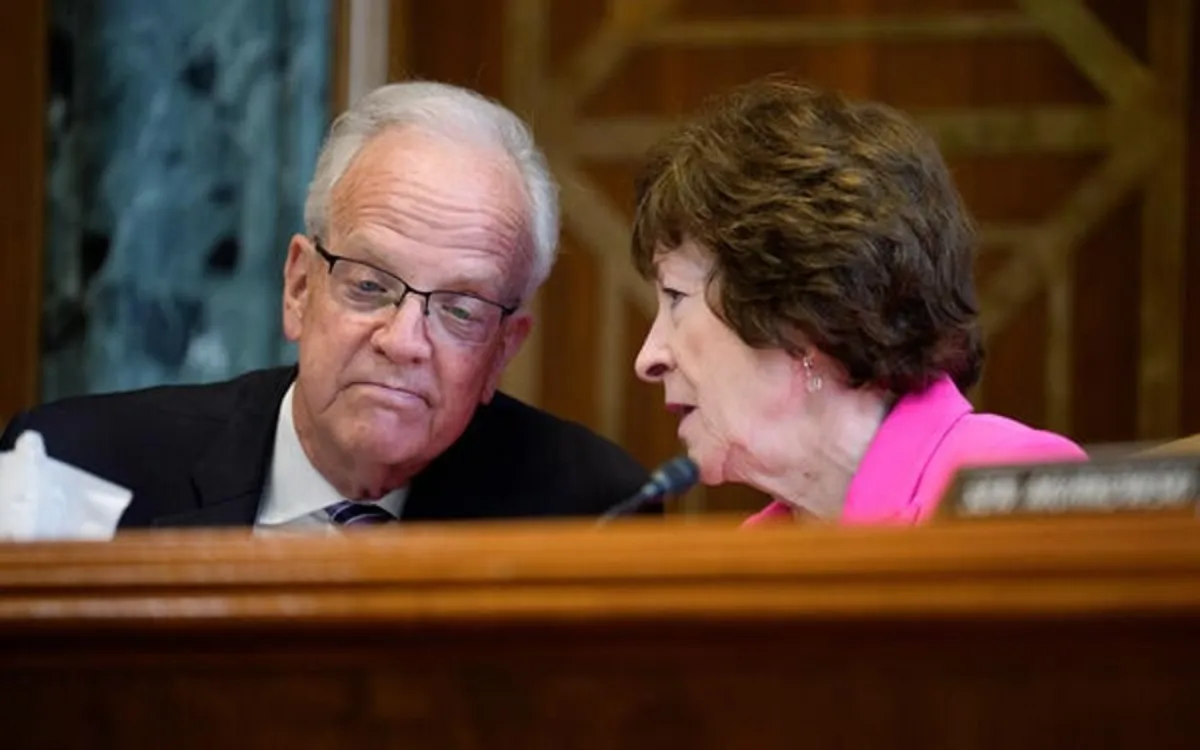
Signs that Congress is gearing up to oppose the Trump administration's aggressive budget cuts were evident during a Senate meeting on Thursday, which marked the beginning of the annual appropriations process. Since taking office in January, the Trump administration has aimed to significantly downsize the federal government through mass layoffs and severe spending reductions. This includes the cancellation of grants and the withholding of funding, actions that contradict laws mandating that agencies utilize their allocated budgets as directed by Congress.
During Thursday's proceedings, a subcommittee responsible for overseeing the budgets of the Justice and Commerce Departments, along with related science agencies, proposed only a small reduction to the National Science Foundation (NSF) budget for the upcoming fiscal year. Instead of the dramatic $5 billion cut sought by President Donald Trump, the NSF budget will see a modest decrease of just $16 million, bringing it to slightly over $9 billion, as noted by Senator Jerry Moran, the Kansas Republican chairing the subcommittee. The proposal also allocates an additional $10 million to the National Weather Service (NWS) and increases funding for the National Aeronautics and Space Administration (NASA).
The science funding initiatives received bipartisan backing, yet tensions over the location of the new Federal Bureau of Investigations headquarters threaten to derail the legislation. Senator Chris Van Hollen, a Democrat from Maryland and vice chair of the subcommittee, voiced his disapproval of the Trump administration's decision to relocate the headquarters to a different building in Washington, D.C. This decision contradicts a plan approved during the Biden administration to build a new facility in Maryland, for which Congress had already appropriated funds.
Following the Senate appropriations committee's approval of an amendment proposed by Van Hollen regarding the headquarters, some Republican members altered their votes, leading to a recess rather than a final decision on the legislation. Senator Susan Collins, a Republican from Maine and chair of the full appropriations committee, expressed disappointment that a single issue could jeopardize a bipartisan bill. Despite this setback, Van Hollen emphasized the positive aspects of the legislation, stating, "We were able to make smart and targeted investments to help keep our community safe, advance U.S. leadership in science and innovation, and support the growth of the American economy."
Higher education advocates and research organizations have cautioned that a proposed cut of over 50% to the NSF budget would be disastrous, potentially stalling U.S. research for decades. The Trump administration's plans included eliminating funding for STEM training programs and drastically reducing scholarships and postdoctoral fellowships. As of now, the committee has not released detailed information about the budget bill, including specific line-item allocations for the NSF, and details are primarily based on remarks made during Thursday's meeting.
Senators Van Hollen and Moran revealed that NASA is set to receive approximately $24.5 billion to enhance space exploration, significantly higher than the $18.8 billion requested by the Trump administration. The additional $10 million for the National Weather Service aims to restore staffing levels, as the agency has seen a loss of about 17% of its workforce—equating to around 600 employees—due to buyouts and layoffs. In comparison, the National Oceanic and Atmospheric Administration (NOAA), which oversees the NWS, has experienced an 11% staff reduction.
Congress faces a deadline of September 30 to pass the 12 appropriations bills that constitute the federal budget; failing to do so could result in a government shutdown. Both Democrats and some Republicans are eager to utilize this process to reaffirm Congress's authority over spending decisions. Senator Patty Murray, a Democrat from Washington and vice chair of the appropriations committee, remarked, "The challenges we face and the threats to this very process are greater than ever before, with the president and administration intent on ignoring the laws that we write."
In conclusion, the current appropriations process highlights the ongoing struggle between Congress and the Trump administration regarding federal budget priorities. With a focus on protecting essential programs and advancing scientific research, lawmakers are working to ensure that critical investments continue to support the American economy and public safety.